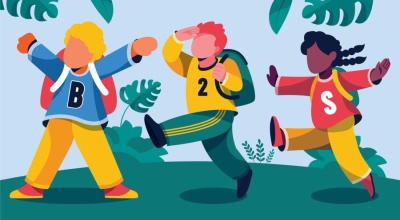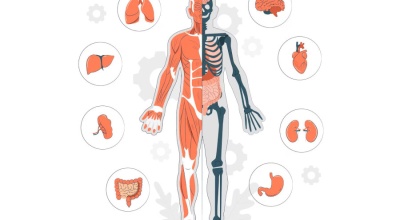Find all sorts of fun and interesting things about communities and lifestyles, nature, resources, games and science activities.
Feeding wildlife changes how animals view people, to their detriment, and to ours.
Wild animals don’t need your handouts.
They need your respect.
You may not realize it – a simple bag of garbage, bowl of pet food, or a wild bird feeder can create problems with wildlife.
If wild animals have access to human food and garbage, unnatural foraging behavior can begin. Wildlife venturing into residential neighborhoods seeking food and garbage puts both people and animals at risk. Wildlife are made susceptible to vehicle strikes, pesticide poisoning and disease that can spread among wildlife that would not normally come into contact with each other.
Whether you live in a city or a rural part of California, wild animals are your neighbors. They naturally fear humans and keep their distance – so long as they remain fully wild.
Reduce, Reuse and Recycle for Kids
Public Downloads
All items are free to view, share, and download.
Public Downloads - Español (Spanish)
When available, we provide all our content with a Spanish version in our public download section. You can find additional material from sources listed in all our articles.
Download Around the World Environmental Activities
 Ecological Social Justice Training Manual For Learning Earth Issues
Ecological Social Justice Training Manual For Learning Earth Issues
 Global Assessment Animation
Global Assessment Animation
 Matching Game Puzzle - Climates of the World
Matching Game Puzzle - Climates of the World
 National Marine Sanctuaries and NOAA Ocean Literacy Cards
National Marine Sanctuaries and NOAA Ocean Literacy Cards
 Relationship Between Water Agriculture Food Security and Poverty
Relationship Between Water Agriculture Food Security and Poverty
 The State of Plastics World Environment Day
The State of Plastics World Environment Day
 UN Environment and Climate Clean Seas Campaign Logo
UN Environment and Climate Clean Seas Campaign Logo
 UN Environment and Climate Clean Seas Identity Guide
UN Environment and Climate Clean Seas Identity Guide
 UN Environment and Climate Marine Litter Vital Graphics
UN Environment and Climate Marine Litter Vital Graphics
 World Oceans Day Plastic Free Party Kit
World Oceans Day Plastic Free Party Kit
 World Oceans Youth Guide
World Oceans Youth Guide
 YouthXchange Guidebook Series Climate Change and Lifestyles
YouthXchange Guidebook Series Climate Change and Lifestyles
 Breaking Up with Single-use Plastics Back to School Plastic Challenge UN Environment and Climate Activity Book
Breaking Up with Single-use Plastics Back to School Plastic Challenge UN Environment and Climate Activity Book
 Discover Your Changing World with NOAA Activity Book
Discover Your Changing World with NOAA Activity Book
 Ocean Crusaders Collection of Activity Worksheets
Ocean Crusaders Collection of Activity Worksheets
 Ocean Literacy for All Toolkit
Ocean Literacy for All Toolkit
Download 2030 Breathe Life World Environmental Challenges
 2017-2018 Climate & Clean Air Coalition Annual Report
2017-2018 Climate & Clean Air Coalition Annual Report
 About Climate and Clean Air Coalition
About Climate and Clean Air Coalition
 Air Pollution Health Effects Household Brochure
Air Pollution Health Effects Household Brochure
 Air Pollution the Health Story
Air Pollution the Health Story
 BreatheLife - I Check Daily Air Pollution Levels
BreatheLife - I Check Daily Air Pollution Levels
 BreatheLife - I Compost My Waste
BreatheLife - I Compost My Waste
 BreatheLife - I Don’t Burn Waste
BreatheLife - I Don’t Burn Waste
 BreatheLife - I Don’t Drive During Rush Hour
BreatheLife - I Don’t Drive During Rush Hour
 BreatheLife - I Drive an Electric Vehicle
BreatheLife - I Drive an Electric Vehicle
 BreatheLife - I Recycle My Waste
BreatheLife - I Recycle My Waste
 BreatheLife - I Turn Off Lights and Electronics Not In Use
BreatheLife - I Turn Off Lights and Electronics Not In Use
 BreatheLife - I Use Clean Energy To Cook
BreatheLife - I Use Clean Energy To Cook
 BreatheLife - I Use Renewable Energy to Power My Home
BreatheLife - I Use Renewable Energy to Power My Home
 BreatheLife - I Walk Home
BreatheLife - I Walk Home
 BreatheLife - I Walk to Work
BreatheLife - I Walk to Work
 BreatheLife 2030 Cities Brochure
BreatheLife 2030 Cities Brochure
 Reducing Short-Lived Climate Pollutants
Reducing Short-Lived Climate Pollutants
 WHO Breathe Life - How Air Pollution Impacts Your Body
WHO Breathe Life - How Air Pollution Impacts Your Body
 BreatheLife 2030 Infographic 01
BreatheLife 2030 Infographic 01
 BreatheLife 2030 Infographic 01 Spanish
BreatheLife 2030 Infographic 01 Spanish
 BreatheLife 2030 Infographic 02
BreatheLife 2030 Infographic 02
 BreatheLife 2030 Infographic 03
BreatheLife 2030 Infographic 03
 Household Air Pollution Health Effects Infographic
Household Air Pollution Health Effects Infographic
 Urban Waste Generation Around the World Infographic
Urban Waste Generation Around the World Infographic
 Why Act on Short-Lived Climate Pollutants Infographic
Why Act on Short-Lived Climate Pollutants Infographic
 Why Act on Short-Lived Climate Pollutants PDF Infographic
Why Act on Short-Lived Climate Pollutants PDF Infographic
Download Marine Debris Activities
 An Educators Guide to Marine Debris
An Educators Guide to Marine Debris
 Did You Know Marine Debris Bookmark Series
Did You Know Marine Debris Bookmark Series
 Do Not Feed Wildlife Poster
Do Not Feed Wildlife Poster
 Evidence Life Cycle Assessment of Supermarket Carrier Bags
Evidence Life Cycle Assessment of Supermarket Carrier Bags
 Factsheet on the Marine Debris and Plastic Source Reduction Toolkit
Factsheet on the Marine Debris and Plastic Source Reduction Toolkit
 Family Communication Plan Template
Family Communication Plan Template
 Marine Debris Unscramble
Marine Debris Unscramble
 National Marine Sanctuaries and NOAA Ocean Literacy Cards
National Marine Sanctuaries and NOAA Ocean Literacy Cards
 The Last Straw Community Toolkit
The Last Straw Community Toolkit
 The Marine Debris Song
The Marine Debris Song
 The Marine Debris Song Lyrics
The Marine Debris Song Lyrics
 Top 15 Marine Debris Items
Top 15 Marine Debris Items
 Trash Free Waters FACTSHEET- Marine Debris What You Can Do
Trash Free Waters FACTSHEET- Marine Debris What You Can Do
 Understanding Marine Debris Games and Activities Book
Understanding Marine Debris Games and Activities Book
 What is Marine Debris Poster
What is Marine Debris Poster
 World Oceans Day Plastic Free Party Kit
World Oceans Day Plastic Free Party Kit
 World Oceans Youth Guide
World Oceans Youth Guide
Download Recycling Activities
 10 Amazing Things Made Out of Recycled Goods Presentation and Activities
10 Amazing Things Made Out of Recycled Goods Presentation and Activities
 A Recycled Arts and Crafts Guide Book
A Recycled Arts and Crafts Guide Book
 About Recycling - Fun And Not So Fun Facts
About Recycling - Fun And Not So Fun Facts
 All Green Electronics Recycling - Certified Electronics Recycling and Disposal
All Green Electronics Recycling - Certified Electronics Recycling and Disposal
 Basic Recycling Chart and Guidelines
Basic Recycling Chart and Guidelines
 Basic Recycling Infographic about Municipal Solid Waste
Basic Recycling Infographic about Municipal Solid Waste
 Battery Recycling Guide
Battery Recycling Guide
 Call2Recycle Program Overview Sheet
Call2Recycle Program Overview Sheet
 Commons Green Open Educational Resources Collections
Commons Green Open Educational Resources Collections
 Earth911 Find Local Recycling Information
Earth911 Find Local Recycling Information
 Gadget Salvation - Sell Your Electronics
Gadget Salvation - Sell Your Electronics
 How To Celebrate Global Recycling Day on March 18th
How To Celebrate Global Recycling Day on March 18th
 K-12 to College Courses Commons Green Open Educational Resources
K-12 to College Courses Commons Green Open Educational Resources
 Recycling - The Seventh Resource Manifesto
Recycling - The Seventh Resource Manifesto
 Recycling Goals Challenge Infographic
Recycling Goals Challenge Infographic
 Recycling Seven Promises Infographic
Recycling Seven Promises Infographic
 Schedule a Charity Donation Pick Up – DonationTown
Schedule a Charity Donation Pick Up – DonationTown
 Secret Life of Batteries- Drop-off Locations
Secret Life of Batteries- Drop-off Locations
 The CD Recycling Center of America
The CD Recycling Center of America
 The CD Recycling Center of America - Proper Destruction Presentation
The CD Recycling Center of America - Proper Destruction Presentation
 The Free Repair Manuals
The Free Repair Manuals
 Trash Free Waters Fact Sheet Marine Debris
Trash Free Waters Fact Sheet Marine Debris
 What Can I Recycling
What Can I Recycling
 What Do Recycling Symbols on Plastics Mean
What Do Recycling Symbols on Plastics Mean
 Adventure of the Garbage Gremlin Book Educational Recycle Activities
Adventure of the Garbage Gremlin Book Educational Recycle Activities
 Environment - Recycle Coloring Book
Environment - Recycle Coloring Book
 Environment - Recycle Reuse Reduce Coloring Book
Environment - Recycle Reuse Reduce Coloring Book
 Environment - Reduce Coloring Book
Environment - Reduce Coloring Book
 Environment - Reuse Coloring Book
Environment - Reuse Coloring Book
 Kids Activity and Environment Guide Book
Kids Activity and Environment Guide Book
 Planet Protectors Club Case of the Broken Loop Activity Book
Planet Protectors Club Case of the Broken Loop Activity Book
 Planet Protectors Club Case of the Broken Loop Activity Book - Spanish
Planet Protectors Club Case of the Broken Loop Activity Book - Spanish
 Planet Protectors Club Follow That Trail Activity Book
Planet Protectors Club Follow That Trail Activity Book
 Planet Protectors Club Follow That Trail Activity Book - Spanish
Planet Protectors Club Follow That Trail Activity Book - Spanish
 Planet Protectors Club Trash and Climate Change Activity Book
Planet Protectors Club Trash and Climate Change Activity Book
 Planet Protectors Club Trash and Climate Change Activity Book - Spanish
Planet Protectors Club Trash and Climate Change Activity Book - Spanish
 Planet Protectors Create Less Waste in the First Place Activity Book
Planet Protectors Create Less Waste in the First Place Activity Book
 Planet Protectors Create Less Waste in the First Place Activity Book - Spanish
Planet Protectors Create Less Waste in the First Place Activity Book - Spanish
 Recycle City Activities and Games
Recycle City Activities and Games
 Recycle City Website
Recycle City Website
 Recycling Posters Activity Book
Recycling Posters Activity Book
 The Last Straw Community Toolkit
The Last Straw Community Toolkit
Download Infographics
 Alternatives infographic
Alternatives infographic
 Alternatives infographic 1
Alternatives infographic 1
 Alternatives infographic 2
Alternatives infographic 2
 Alternatives infographic 3
Alternatives infographic 3
 Alternatives infographic 4
Alternatives infographic 4
 Alternatives infographic 5
Alternatives infographic 5
 Alternatives infographic 6
Alternatives infographic 6
 Alternatives infographic 7
Alternatives infographic 7
 Alternatives infographic 8
Alternatives infographic 8
 Climate Change Infographic Compressed
Climate Change Infographic Compressed
 If You Can't Reuse It Refuse It
If You Can't Reuse It Refuse It
 If You Can't Reuse It Refuse It 1
If You Can't Reuse It Refuse It 1 Download {pdfviewer jdownloadsid=7042 filename="If You Can\'t Reuse It Refuse It 1.jpg" }
 If You Can't Reuse It Refuse It 2
If You Can't Reuse It Refuse It 2 Download {pdfviewer jdownloadsid=7043 filename="If You Can\'t Reuse It Refuse It 2.jpg" }
 If You Can't Reuse It Refuse It 3
If You Can't Reuse It Refuse It 3 Download {pdfviewer jdownloadsid=7044 filename="If You Can\'t Reuse It Refuse It 3.jpg" }
 If You Can't Reuse It Refuse It 4
If You Can't Reuse It Refuse It 4 Download {pdfviewer jdownloadsid=7045 filename="If You Can\'t Reuse It Refuse It 4.jpg" }
 If You Can't Reuse It Refuse It 5
If You Can't Reuse It Refuse It 5 Download {pdfviewer jdownloadsid=7046 filename="If You Can\'t Reuse It Refuse It 5.jpg" }
 If You Can't Reuse It Refuse It 6
If You Can't Reuse It Refuse It 6 Download {pdfviewer jdownloadsid=7047 filename="If You Can\'t Reuse It Refuse It 6.jpg" }
 If You Can't Reuse It Refuse It 7
If You Can't Reuse It Refuse It 7 Download {pdfviewer jdownloadsid=7048 filename="If You Can\'t Reuse It Refuse It 7.jpg" }
 Infographic Marine Litter
Infographic Marine Litter
 Infographic Marine Litter 1
Infographic Marine Litter 1
 Infographic Marine Litter 2
Infographic Marine Litter 2
 Infographic Marine Litter 3
Infographic Marine Litter 3
 Infographic Marine Litter 4
Infographic Marine Litter 4
 Infographic Marine Litter 5
Infographic Marine Litter 5
 Infographic Plastic Management
Infographic Plastic Management
 Infographic Plastic Management 1
Infographic Plastic Management 1
 Infographic Plastic Management 2
Infographic Plastic Management 2
 Infographic Plastic Management 3
Infographic Plastic Management 3
Download Climate Reports
 2017-2018 Climate & Clean Air Coalition Annual Report
2017-2018 Climate & Clean Air Coalition Annual Report
 2018-October-8 UN Climate Report
2018-October-8 UN Climate Report
 2018-October-8 UN Climate Report Press Release
2018-October-8 UN Climate Report Press Release
 President Barack Obama Climate Action Plan
President Barack Obama Climate Action Plan














